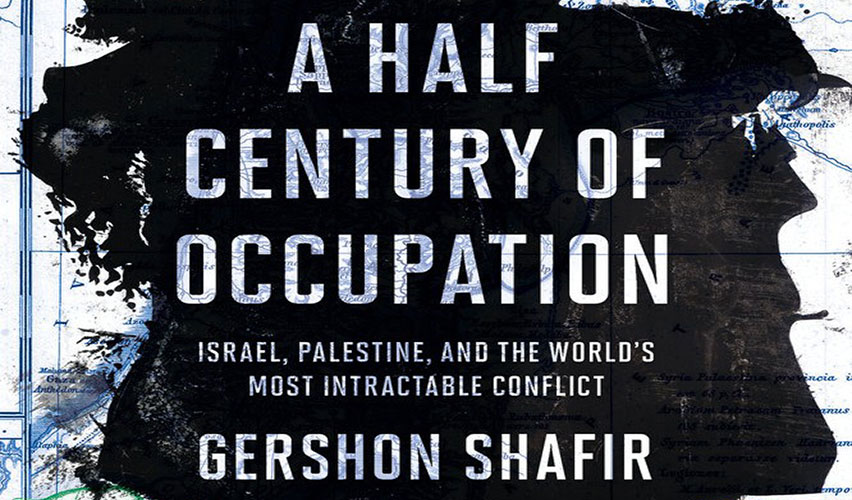Gershon Shafir is the author of the recently published: A Half Century of Occupation: Israel, Palestine, and the World’s Most Intractable Conflict
In these timely and provocative essays Gershon Shafir inquires “What is the occupation?” “Why has this occupation lasted so long?” and “How has the occupation transformed the Israeli-Palestinian conflict?” in order to figure out how we got here, what here is, and where we are likely to go. He expertly demonstrates that at its fiftieth year, the occupation is riven with paradoxes, legal inconsistencies, and conflicting interests that weaken the occupiers’ hold and leave the occupation itself vulnerable to challenges.
Gershon Shafir is Professor of Sociology at the University of California, San Diego. He is the author or editor of ten books, among them Land, Labor, and the Origins of the Israeli-Palestinian Conflict, 1882–1914. He is also the coauthor, with Yoav Peled, of Being Israeli: The Dynamics of Multiple Citizenship, which won the Middle Eastern Studies Association’s Albert Hourani Award in 2002, and the coeditor, with Mark Levine, of Struggle and Survival in Palestine/Israel, 2012, a collection of life histories.







[…] Pero Israel no es un ocupante clásico. Las ocupaciones de territorios derivadas de un conflicto (por ejemplo, la de Iraq por Estados Unidos o la de Alemania por las potencias aliadas al término de la segunda Guerra Mundial) no duraron más de una década, fieles a los principios de temporalidad, no anexión y buena fe. Los distintos gobiernos judíos no han respetado estos principios. Desde 1967 ha continuado la expansión de las colonias y la magnitud de los recursos financieros y militares destinados a esta empresa deja al descubierto la verdadera intención, que no es otra que convertir en permanente la ocupación. Como escribe otro israelí sensato, el profesor Gershon Shafir, “la temporalidad continúa siendo un subterfugio israelí para crear hechos permanentes sobre el terreno”, lo que impide la autodeterminación de los palestinos (Israel maintains the occupation by denying it, Partners for Progessive Israel). […]